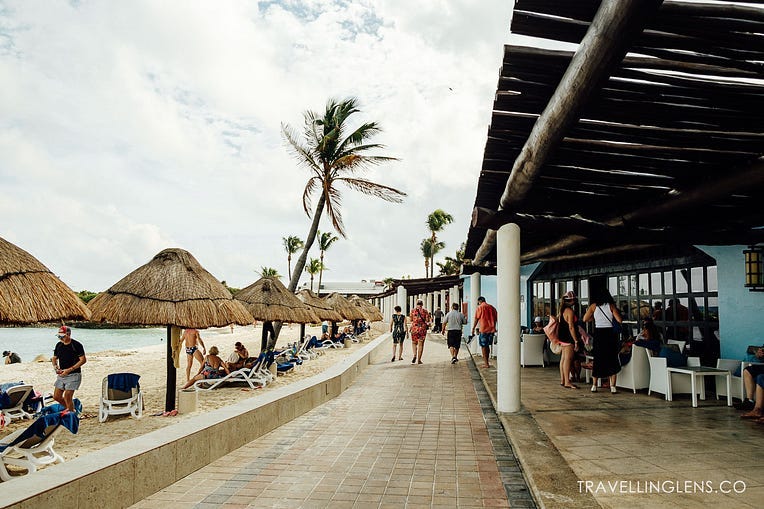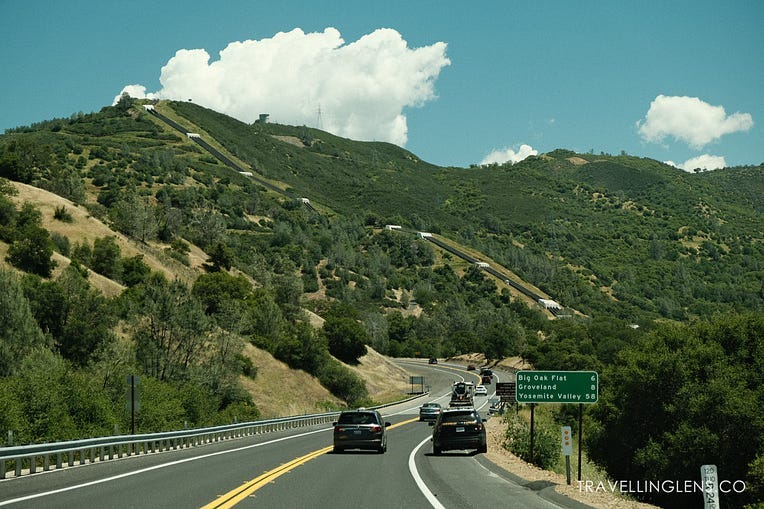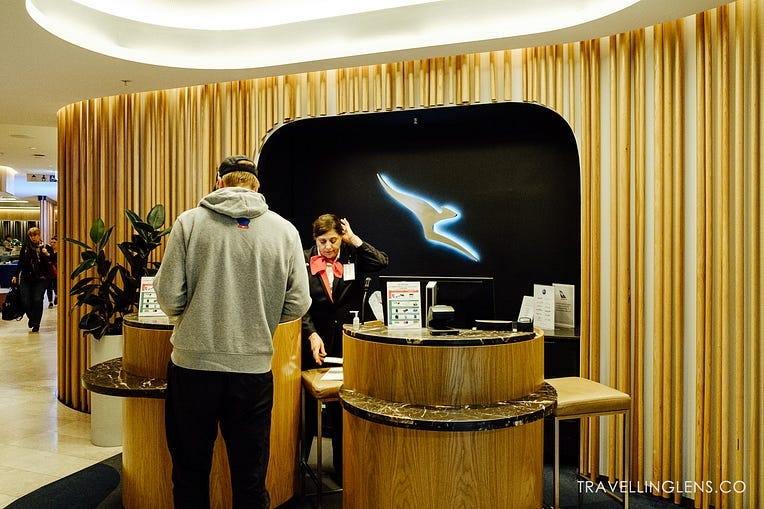Reflections My First 12 Months in the USA as an Aussie Expat
The highs and lows of living and traveling around the USA.
In 2023, we made the life changing decision to move across the world to Texas, USA.
It’s truly been a wild adventure with many highs and lows. From the chaos of packing and moving, flight cancellations, and learning to drive ignoring speed limits… to stunning landscapes, delicious food, and sipping cocktails by a Mexican beach with friends.
There is nothing like moving away from your comfort zone to grow as a human.
To move away from familiarity — family, friends, career, home, society norms you understand — to a similar yet vastly different country has been eye-opening (to say the least)
These are my highlights and challenges we faced in our first 12 months of living and traveling based out of Texas, USA.
5 Big Highlights
1. We’ve done a lot of travel!
One of the “selling points” that tipped the scale to move across the USA was to take the opportunity to travel more and explore the Americas a bit more.
Go to places that are slightly harder to get to unless you had a lot of time or lived in the USA (instead of just someone who’s flying from Australia to the USA for a few weeks and only has time for the big cities)
When I looked back at my trip plans that I stored in Notion to write this post, I was shocked to see I’ve traveled 85 days in our first 12 months abroad!
These were mostly short 3 to 5 day long weekend trips (since my husband has limited leave while working full time), with a couple of big 2 to 3 overseas trips.
We’ve mostly done a lot of domestic travel:
Austin
Chicago
Yosemite
San Antonio
New Orleans
San Francisco
New York City
Corpus Christi
Dallas-Fortworth
Some international travel:
Singapore
London, UK
Cancun, Mexico
Danang, Vietnam
San Sabastian, Spain
Paris & Bordeaux, France
Penang & Kuala Lumpur, Malaysia
I’m extremely grateful for all the opportunity and freedom to travel and explore at this stage of our life.
Despite no longer being in a 9-5 after our move abraod I’ve felt just as busy!
All that “free time” has been directed towards juggling the logistics of settling into a new country and culture, and travel planning.
2. Rekindled my passion for photography (and took 12,000+ photos in 12 months!)
When I looked through my Adobe Lightroom catalogue, I wasn’t surprised to see it’s exploded with photos.
But I didn’t expect an additional 12,000+ photos over 12 months!
This is the most number of photos that I’ve taken over a 12-month period.
I’ve always struggled to keep up with photo editing when I had a 9-5 back in Australia.
Funnily enough, I’m in a no better situation… I’m still taking more photos than I have time to edit, share, and write about.
Historically, I mostly take travel and street photos, and a handful of client photography assignments each year.
Most years, I would only take around 2000 to 5000 photos a year (according to my Lightroom stats), and even less during the COVID pandemic era when we hardly traveled.
The truth is, over the last 3 to 4 years, besides client work, I didn’t have much time for personal photography.
And if I’m honest I lost a bit of that “spark” for photography. Feeling burned out during the pandemic year (working in healthcare), work and personal life commitments (e.g. getting married, house hunting) meant I had less and less time for photography.
Moving across the USA, doing a ton of travel again, and getting to experience so many new things has made everything interesting to photograph.
And I’m loving it.
I’m making a point to take a lot of photos and videos on both my Fujifilm camera and mobile phone, to really capture our day-to-day life and experiences.
Going on a sabbatical and living in a different country is truly a once-in-a-lifetime experience. I want to make sure I make the most of it and also document our experiences along the way.
3. Met some amazing friends
Moving cities let alone countries is an intense process.
First is simply the logistics of shutting down life as you know it in one place, and re-start a life in another place.
The USA looks and feels familiar, at least on a superficial level since we all see and hear about the USA in the media all the time.
But I can tell you from first-hand experience, that setting up a life here is very different from being a passing tourist.
We’ve been fortunate to have made some great Aussie expat friends since we arrived who understand what we’ve gone through, having gone through it themselves.
In fact, we were invited out for drinks to meet them on very next day after we landed while still jetlagged and tired.
The summer of 2023 was scorching. Endless and persistent 40+ degree celsius days.
The cold drinks were much needed.
We share the common bond of settling into a new city with different cultural norms, and bonding over some of these experiences as Aussies:
Examples of some positives:
2 hour Amazon deliveries
Cheap sales (there is always a reason to have a sale in the USA…)
Sharing travel itineraries and recommendations (all expats aim to travel while they’re here!)
Examples of some negatives:
The terribly hot and humid weather in Texas
Frustrations with a healthcare system that often feels nonsensical
The dangerous and sometimes life-threatening driving (that you have to just get used to if you plan to leave the home).
With these strangers turned friends, life has been less lonely, and more fun.
4. Growth from adversity
It’s weird to say adversity is a highlight.
Trust me, at the time of experiencing it, there is no joy in it.
But on reflection, they’re exactly the events that helped me personally become more resilient, flexible and pragmatic.
When you live in your own home country for a while, things become routine. You know how things work like the back of your hand.
Moving to a new city where grocery shopping takes you 3x as long because they call things by different names, personal safety is a big concern, banking is different, etc… suddenly everything takes 5x as long to figure out as back in Australia!
It took a good 3 to 6 months to really feel comfortable and settled into our new city.
If you’re a new expat in the USA, planning to move across or simply just visiting the USA as a tourist, expect a lot of domestic travel delays and cancellations if you’re planning to travel around the country right now.
5. An opportunity to explore other aspects of life and learn the art of business
Being on sabbatical has given me the freedom to explore other passions and interests — travel, writing, photography, and entrepreneurship.
I’ve spent some of my time freelancing, learned a heap about entrepreneurship, and spent a lot of time reading and learning.
Ironically, in some ways, I feel just as busy (if not more busy) compared to when I was in a day job in Australia!
But it’s a different kind of busy when you’re weaving in learning, applying your skills to freelance work, adapting and setting yourself up in a new city, and understanding the cultural norms.
6 challenges every expat should know upfront
1. Setting up shop in any new country has a steep learning curve
Australia has many similarities to the USA but rules and systems are vastly different.
Here’s just one simple practical observation: Despite how high the USA is, I found that the USA is still quite old school in some aspects
They use a lot of paper. Their forms are not the most user-friendly things to use.
Banking is surprisingly backward (and more complex) than in Australia. People routinely send and receive cheques in the USA! I don’t think I handled a cheque as an adult until I moved across to the USA.
Getting a credit card is a catch-22 because you need to “build your credit” to get a credit card. But you can’t get a credit card to build your credit ’cause you have no credit history!
The bottom line is, to give yourself grace and time. Expect to take 3 to 6 months to settle in. Ask other expats for their tips and advice on how they handled a lot of the practical setup.
2. The healthcare system is a beast
After 12 months of living in the USA, I can safely say I don’t feel I even understand 1% of how the whole mammoth system works.
With my background in healthcare, I found this to be the toughest thing to navigate. Sometimes, I feel like they don’t make it easy to understand on purpose!
To date, dealing with anything healthcare-related is something I dislike.
Facing some personal health issues in our first 12 months has meant I had no choice but to deal with it and learn to navigate the system.
I’m grateful for the insurance coverage we have because without it getting healthcare is near financially impossible.
In the USA, you have access to world-class healthcare (for those who can afford it).
And for those who can’t, unfortunately, it doesn’t go well for them. Medical debt and bankruptcy is a very real fear living in the USA.
My first-hand experience of the USA system has given me immense appreciation of how good the Australian healthcare system is, despite all its flaws.
And I know them firsthand since I spent my whole career working in the public healthcare system.
I still find it odd to be hounded with so many pharmaceutical ads on TV (most medications are for highly expensive and complex diseases).
It’s a stark contrast to Australia where pharmaceutical advertising is restricted prohibited except for a few instances.
I’ll stop there though, because I could write a book about my health care experiences otherwise.
3. Being away from the comfort zone of your family and friends can be tough
The great thing about being an expat or doing long-term travel these days is that you can easily stay connected with family and friends as long as you have an internet connection.
WhatsApp, Facebook Messenger, and Zoom have been tremendously helpful in staying in touch with people back home.
I always enjoy my calls with family and friends back home.
Despite the 13 to 14-hour time difference, I still make a point to keep up with the book club girls back home and update each other on our lives.
4. Travel in the USA feels like chaos 50% of the time
We’ve spent around 85 days traveling in our first 12 months.
And honestly it felt like at least 50% of our flights were either delayed or cancelled.
We’re constantly keeping track of our bags and the incoming flights to see if there’s a chance they will be delayed so we can start making backup plans.
We’ve mainly traveled with United Airlines and American Airlines, and the airline apps are actually really great with giving a lot of detailed tracking and updates.
I’ve learned so much about travel and travel planning over the last 12 months and created a locked-down routine for travel research, planning, booking flights, booking accommodation and designing our travel itineraries.
This is something I’m eager to share here on Substack, so if that sounds interesting, don’t forget to subscribe.
I’m not sure if this is just our bad luck with travel, just the way US aviation culture is or a symptom of the post-COVID world.
These are stressful experiences, especially when most of our trips are 3 to 5-day trips. Being delayed by a day or two cuts our trip short by 20 to 40%!
To minimise these problems, we’ve become more savvy with how we book our trips.
We prioritise:
Maximising the chances of getting there to start our trip.
Making delays less painful to deal with..
A practical example of this is that we always looking for direct flights with no layovers (even if it’s a bit more expensive), especially on our way to a destination, and paying the extra $30 for the added benefit of free cancellation up to the day of check-in for hotels.
5. Making friends in your 30s is vastly different to your 20s
You don’t have the history and social ties like in your home city — friends you went to school with, co-workers turned friends, community groups you’re part of, etc.
This is especially hard if you’re the accompanying spouse rather the working expat.
Fellow expats have joined hobby groups, used apps by Bumble Friends, and met other parents through their kids’ schools.
6. Suddenly you don’t have people you can rely on
Without your usual close friends and family to support you when you’re going through something difficult or need help with pick-ups and drop-ups (especially if you have kids as an expat), logistics and life can feel a bit more challenging.
The strangers turned new friends you make (other expats or locals) quickly become that support group.
When you hang out with expats from your home country, there is a common bond and understanding of the struggles we face. And even inside jokes that only Aussies will understand.
For that, we’ve been grateful for the help and support of the expat friends who we’ve become fast friends with.
Wrap up
I hope this has been helpful insight if you’re planning to move to the USA or elsewhere.
I’m excited to share more tips, recommendations, and experiences traveling based out of the USA and living as an expat.
If you’ve lived abroad, what are some of your highlights or challenges you experienes? I would love to hear about it.








